Scott Whiting Austin
61, a former College of Arts & Sciences assistant professor of philosophy, on December 19, 2014.
An internationally regarded scholar of ancient Greek philosophy, Austin was a senior associate professor in philosophy at Texas A&M University, where he is remembered for his inimitable pedagogy and devotion to students. He mentored graduate students and countless undergraduates; served as the director and faculty advisor of the undergraduate program in philosophy for 14 years; and was the faculty advisor of his department’s undergraduate journal and philosophy club. Twice he received university awards for excellence in teaching.

Scott Whiting Austin
Austin earned a BA from Yale University in 1974 and a PhD from the University of Texas at Austin. He was the recipient of a Fulbright Fellowship.
He was a member of the Boston University faculty in the 1980s, and was a visiting fellow in the Princeton University philosophy department in 1999 and at Clare Hall at the University of Cambridge, England, in 2004–2005.
He divided his 2010 sabbatical year between visiting professorships at Renmin University of China in Beijing and the University of Szeged in Hungary.
Austin was the author of the monographs Parmenides: Being, Bounds, and Logic (Yale University Press, 1986), Parmenides and the History of Dialectic: Three Essays (Parmenides Publishing, 2007), and Tao and Trinity: Notes on Self-Reference and the Unity of Opposites in Philosophy (Palgrave Pivot, 2014), as well as numerous scholarly articles.
Arthur Dunphy (COM’61)
80, a former College of Communication adjunct professor of public relations, on March 22, 2014.
After earning a BS in journalism at COM, Dunphy became sports information director for BU, a position he held for nine years, during which he voiced the radio play-by-plays for hockey and football games. His subsequent positions included a role as the publicity director for the then-new professional hockey team, the New England Whalers (now the Carolina Hurricanes). When the Whalers moved to Hartford, Conn., Dunphy combined his interests in sports and journalism to establish two regional sports publications on hockey and golf.

Arthur Dunphy. Photo by BU Photography
Dunphy returned to his alma mater in the late 1970s and worked at BU for more than 10 years, holding positions including assistant athletic director, director of alumni communications, and director of alumni relations, as well as serving as a COM adjunct professor of public relations.
Karen Canfield (COM’83), who attended BU while Dunphy was a faculty member, recalls how he guided her academic and professional path “with kindness, wisdom, and inspiration.” Dunphy’s mentorship extended beyond BU; when Canfield moved back to Boston a few years after graduation, she says, she would still “seek Art out for advice: first professional and, eventually, personal” as she “navigated the early years of marriage and parenting.”
When Dunphy moved on to work at the Boston Public Library (BPL), he continued to attend Terrier sporting events and donate to the Friends of BU Hockey. As BPL’s public information officer, a position he held for a decade, he executed an award-winning PR campaign. After he retired from the library, he was an active community member in his hometown of Scituate, Mass., serving as the PR representative for a local Independence Day celebration, serving on the capital campaign steering committee for the Scituate Library Foundation, and acting as a PR consultant for a few local businesses and universities, including BU.
Canfield, who happened to move to Scituate as well, reflects on Dunphy’s impact on her life beyond BU: “I was an 18-year-old freshman from the Midwest with absolutely no connection to Boston or BU. I met Art—Mr. Dunphy then—[during] my first week, and he ended up being a lifelong mentor and friend.”—Mara Sassoon
David C. Mountain
68, a College of Engineering professor of advanced hearing and acoustics research, on November 5, 2014.

David C. Mountain
An internationally recognized professor of biomedical engineering at BU for the past 35 years, Mountain pursued research on auditory function and underwater acoustics, and was a cofounder of BioMimetic Systems, Inc., a Cambridge-based start-up advancing acoustic sensors for medical, military, and other applications. In 2002, he was inducted as a fellow of the American Institute for Medical and Biological Engineering “for significant engineering-driven advances in the structure-function-mechanism relations of auditory physiology, with emphasis on outer hair cells and cochlea.”
As a principal investigator at BU’s Auditory Biophysics and Simulation Laboratory and a key member of the University’s Hearing Research Center, Mountain pursued research that combined engineering and physiological techniques to improve our understanding of the hearing process. He sought to pinpoint, quantify, and model mechanisms of auditory processing in the cochlea, or inner ear, including the amplifying effect of the cochlea’s outer hair cells.
Applying many of his insights to real-world problems, Mountain studied marine mammal hearing and undersea sound propagation for the US Navy, and he was the main force behind EarLab, an online platform that provides models of the auditory system for a wide range of hearing research applications.
Mountain took a leading role in the design and evolution of the biomedical engineering department’s undergraduate and graduate curricula and was a passionate advocate for incorporating substantial design content into the department’s courses.
“David played a pioneering role in the general development of the department, and hearing research specifically, over the past 35 years,” says Sol Eisenberg, an ENG professor and chair of biomedical engineering. “His contributions in so many areas have helped to make us the department we are today. He will be deeply missed.”—Mark Dwortzan
Memorial contributions in David Mountain’s name may be made to Essex County Greenbelt, 82 Eastern Ave., Essex, MA 01929 or to the Parker River Clean Water Association, P.O. Box 798, Byfield, MA 01922.

































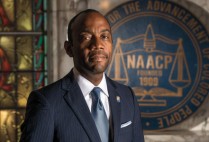
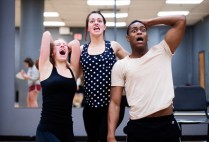
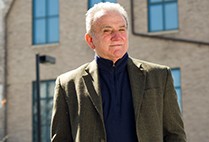
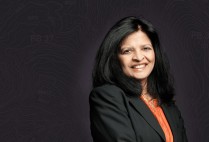
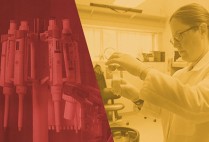
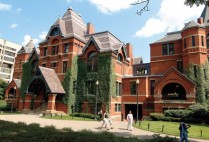









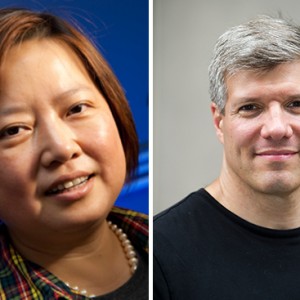


I just wanted to thank Mara Sassoon for her lovely memoir of my Dad, Art Dunphy. To say that BU was a huge part of his life is a major understatement. As children, our family pet was Touchdown, the actual BU Terrier. (Unfortunately Touchdown bit the mailman and went to live on a farm…). Dad once rescheduled a cardiac procedure when BU Hockey made it to the final four, so that he could attend the playoff games. One of his proudest accomplishments was that 8 of Dad’s 9 children graduated BU. He loved the University, and so I am veery grateful that you took the time to remember him. He would be very proud. Laura O’Grady, ENG ’85